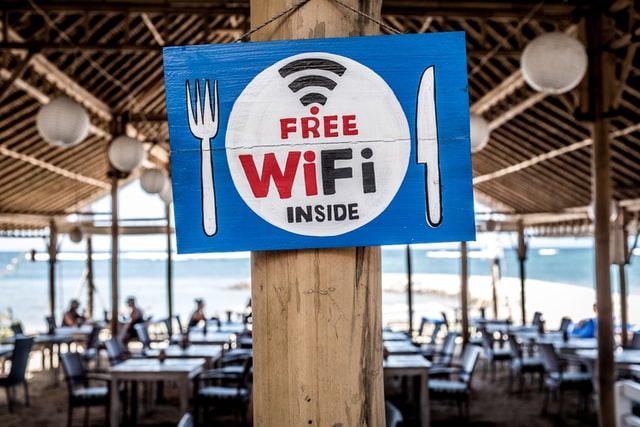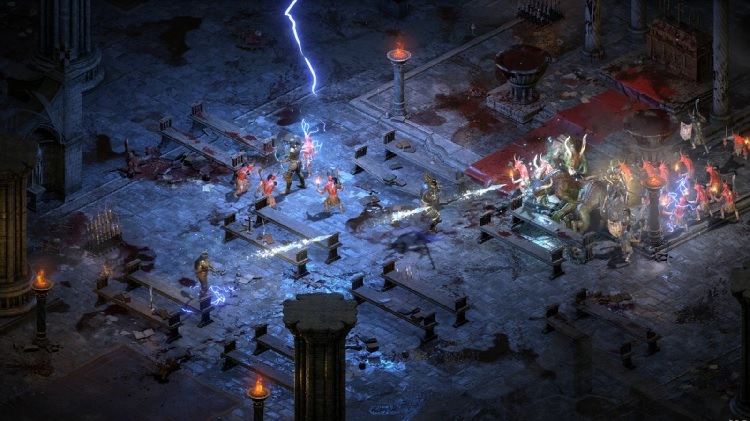Featured
Safety Precautions While Online Gaming

Whether you like to fight monsters, shoot down zombies, or loot, there’s no question about how exciting online gaming can be. You can often become a part of a great community and make all your gaming dreams come to life.
But there’s a dark side to online gaming as well. Not every site and player you come across will be trustworthy. If you’re a hardcore gamer, you’ll likely come across spam letters, fraudulent or malicious sites, hackers, and other deceptive tactics.
With cybercrimes on the rise in the gaming community, it’s important to learn how to stay safe. So, let’s first check some risks that come with gaming and see what you can do to protect your data and resources.
Common Risks Associated with Online Gaming
There are a few common risks that most gaming platforms and gamers face. They’re listed here as examples, not as a way to ward you off gaming. In fact, every internet user faces similar risks. Whether you spend your free time gaming or visiting various websites: we are all in the same boat when it comes to having our personal information exposed.
With this idea in mind, here are some of the common threats:
- Phishing
Phishing is a way to lure you to visit a fraudulent link or to share your sensitive information. Most people have received requests from Nigerian princes asking for some sort of financial assistance. It is the most renowned phishing scam of all time.
- Identity theft
If cybercriminals get their hands on your personally identifiable information, you might become a victim of identity theft. This can be achieved if they trace your IP address, if you accidentally reveal private information, share your credit card details on shady sites, etc.
- IP tracing
IP tracing is when someone finds out your exact physical location by looking into your IP address. This can be used to threaten, harass, blackmail, or even stalk you.
- DDoS
Distributed Denial of Service (DDoS) attacks are increasingly more common. They involve flooding devices or websites with data, causing them to crash. This can be a simple inconvenience, but it can often pose greater security risks.
DDoS attacks are frequent in the gaming industry, but IT and financial services are one of the preferred targets as well.
Considering that there’s a range of threats you can face, it’s important to learn how to protect yourself. So, let’s see what you can do to increase your security while gaming.
Don’t Connect to Public Wi-Fi Spots

Image Source: Unsplash.com
Public networks are risky because they’re just that – public. Anyone can access them, and more tech-savvy actors can use it to steal data or hack vulnerable devices.
Once an attacker knows you’re gaming on a public network, they can breach your connection and monitor your activity. They can use your device for DDoS attacks, hack into them, or steal files.
Use a Reliable VPN
If you must use a public network for gaming, or simply want to protect your privacy, use a reliable VPN. A Virtual Private Network is designed to shield your identity online and enhance your security.
It does so by encrypting your connection to a network and routing it through secure servers. You’ll be provided with a different IP address, and your online activities will be kept private.
It’s generally a good idea to always use a VPN when you’re online. It adds an extra layer of security, which is always welcome.
Search for Genuine Site Reviews
Before you join that new gaming community, make sure to check the reviews. And not just the ones provided by the site in question.
Look for user reviews on other platforms as well. These should tell you everything you need to know – whether it’s a genuine site, whether it has certain problems, and more.
You’ll always come across both positive and negative reviews. Read all of them carefully so that you get a clear idea of what you’re getting yourself into.
It’s also a good idea to Google the site and visit the news section. This action will let you know whether any cybersecurity issues were reported about the website.
Check out the Site’s Network Protocols
It’s crucial to check each site’s network protocols to ensure they’re safe. The protocol is seen in the address bar where the URL goes. You’ll need to look for HTTPS (seen as https://).
HTTPS stands for Hypertext Transfer Protocol Secured. It’s an indication that all the information transmitted through the site is safe and encrypted. Avoid sites that don’t have this network protocol, and never share your personally identifiable information or credit card details with them.
The Bottom Line
While there are many risks like Identity theft associated with online gaming, there are a few simple things you can do to protect yourself. So, remember to:
- Avoid public networks.
- Use a VPN.
- Look for honest reviews.
- Check out the network protocols.
Ensuring online privacy is crucial if you want to enjoy gaming to the fullest. Follow these safety precautions and enjoy gaming without worrying about your privacy.
Featured
Top 15 Apps like GamePigeon for Android, Iphone and PC
In the dynamic world of mobile gaming, multiplayer apps have gained immense popularity, connecting friends and players globally. GamePigeon, a widely acclaimed multiplayer gaming platform, has set a benchmark for interactive gaming experiences. As the demand for such apps continues to grow, enthusiasts are constantly on the lookout for alternatives that offer unique features and engaging gameplay.
In this article, we delve into the top 15 apps like GamePigeon for Android, iPhone, and PC, exploring their features, compatibility, and user reviews.
Explanation Of GamePigeon
GamePigeon, initially introduced as an iMessage extension for iOS devices, has gained widespread recognition for its diverse range of multiplayer games. From classic board games like Chess and Checkers to modern hits like 8-Ball Pool and Cup Pong, GamePigeon provides a one-stop-shop for social gaming within the iMessage app. Its simplicity and seamless integration have made it a favorite among users, fostering a vibrant gaming community.
Growing Popularity Of Multiplayer Gaming Apps In Recent Time
The surge in popularity of multiplayer gaming apps can be attributed to the desire for real-time interactions and shared experiences among players. With the advent of high-speed internet and advanced mobile devices, gaming has transcended traditional boundaries. The ability to connect with friends or opponents across the globe in a virtual gaming environment has become a major driving force behind the success of multiplayer gaming apps.
Top 15 Apps Like GamePigeon
1. Game XYZ

Brief Overview: Game XYZ offers a diverse collection of multiplayer games, ranging from strategy to action, providing an engaging platform for players of all interests.
Key Features: Real-time chat, customizable avatars, and a leaderboard system for friendly competition.
Compatibility: Available on Android, iPhone, and PC.
User Rating: 4.7/5
2. MultiPlay Master

Brief Overview: MultiPlay Master specializes in classic card games and board games, ensuring a nostalgic yet innovative gaming experience.
Key Features: Intuitive controls, multiplayer tournaments, and regular updates with new game additions.
Compatibility: Android and iPhone.
User Rating: 4.5/5
Also Read: How to Get MC Command Center Mod: Sims 4
3. Brunch
Brief Overview: Brunch is a versatile gaming platform that brings together a collection of multiplayer games for social interaction. Its intuitive interface and wide range of games make it an appealing choice for users seeking variety.
Key Features: Diverse game selection, user-friendly interface, real-time multiplayer, and in-game chat.
Compatibility: Available on Android and iOS devices.
User Rating: 4.5/5
4. Houseparty
Brief Overview: Houseparty is not just a gaming app; it’s a social platform where users can play games, video chat, and connect with friends. Its emphasis on real-time interaction makes it an engaging alternative to GamePigeon.
Key Features: Group video chat, interactive games, social integration, and cross-platform support.
Compatibility: Android, iOS, and PC.
User Rating: 4.3/5
5. AirConsole
Brief Overview: AirConsole transforms your smartphone into a game controller and your web browser into the gaming console. With a wide selection of multiplayer games, it offers a unique gaming experience.
Key Features: Browser-based gaming, smartphone as a controller, diverse game library, and real-time multiplayer.
Compatibility: Android, iOS, and PC.
User Rating: 4.2/5
Also Read: Exploring the Edgy World of Sims 4 Strip Clubs
6. Zynga Poker:
Brief Overview: Zynga Poker is a must-have for poker enthusiasts. It provides a realistic poker experience with a large player base, tournaments, and a variety of game modes.
Key Features: Texas Hold’em poker, tournaments, social features, and in-game chat.
Compatibility: Android and iOS.
User Rating: 4.7/5
7. UNO!™
Brief Overview: UNO!™ brings the classic card game to your digital devices, allowing you to play with friends or random opponents. The app adds a modern twist to the timeless UNO experience.
Key Features: Classic UNO gameplay, multiplayer options, tournaments, and customization.
Compatibility: Android and iOS.
User Rating: 4.6/5
Also Read: Top 30+ WTF Unblocked Games: Free Online Games
8. Ball Pool
Brief Overview: For fans of pool, 8 Ball Pool is an immersive and realistic gaming experience. Compete with friends or players worldwide in thrilling 1v1 matches.
Key Features: Realistic pool physics, multiplayer mode, tournaments, and in-game chat.
Compatibility: Android and iOS.
User Rating: 4.8/5
9. Words with Friends 2
Brief Overview: A sequel to the immensely popular Words with Friends, this app combines the love for word games with social connectivity, offering an engaging Scrabble-like experience.
Key Features: Word-building gameplay, solo and multiplayer modes, daily challenges, and social features.
Compatibility: Android and iOS.
User Rating: 4.4/5
Also Read: Sims 4 Cheat Mods: Complete List of All Cheats Codes
10. QuizUp
Brief Overview: QuizUp is a trivia lover’s paradise, offering a vast array of topics to challenge friends or strangers in real-time trivia matches. It’s an excellent app for those seeking mental stimulation.
Key Features: Wide range of trivia categories, real-time matches, global leaderboards, and social integration.
Compatibility: Android and iOS.
User Rating: 4.5/5
11. Psych! Outwit Your Friends
Brief Overview: Created by the makers of Heads Up!, Psych! is a hilarious party game that challenges players to come up with the most creative responses to amusing prompts.
Key Features: Wacky challenges, creative responses, group play, and humor-driven gameplay.
Compatibility: Android and iOS.
User Rating: 4.3/5
12. Draw Something Classic
Brief Overview: Draw Something Classic is a delightful drawing and guessing game that fosters creativity and laughter. It’s a fantastic option for those who enjoy Pictionary-style gameplay.
Key Features: Drawing and guessing, turn-based gameplay, social integration, and colorful visuals.
Compatibility: Android and iOS.
User Rating: 4.6/5
Also Read: How to Get a Birthday Cake in Sims 4 [Complete Guide]
13. Spaceteam
Brief Overview: Spaceteam takes multiplayer gaming to a whole new level by requiring players to work together as a team to operate a spaceship. Communication and chaos ensue in this fast-paced experience.
Key Features: Cooperative gameplay, unique challenges, real-time communication, and cross-platform compatibility.
Compatibility: Android, iOS, and PC.
User Rating: 4.4/5
14. Evil Apples
Brief Overview: Evil Apples is a cheeky and humorous card game that draws inspiration from the infamous Cards Against Humanity. It’s a great choice for those who enjoy irreverent and adult-themed humor.
Key Features: Card-based gameplay, adult humor, multiplayer mode, and social features.
Compatibility: Android and iOS.
User Rating: 4.2/5
15. Game of Games the Game:

Brief Overview: Based on Ellen DeGeneres’ popular TV show, Game of Games the Game brings the same quirky and entertaining challenges to your mobile devices. It’s a fun-filled experience for fans of the show.
Key Features: TV show-inspired challenges, multiplayer mode, diverse mini-games, and humorous commentary.
Compatibility: Android and iOS.
User Rating: 4.1/5
Also Read: An Ultimate Guide On How To Drop Items In Elden Ring
Conclusion
In conclusion, the world of multiplayer gaming apps continues to expand, offering a plethora of alternatives to GamePigeon. Each app brings its unique flavor to the gaming table, catering to diverse preferences and interests. Whether you’re an Android, iPhone, or PC user, there’s a multiplayer gaming app waiting to be explored. As technology advances, we can expect even more innovative and immersive gaming experiences to emerge, further enriching the world of mobile multiplayer gaming.
Featured
Why was Michael Schumacher so good at Formula 1?

The extraordinary Michael Schumacher retired from Formula 1 back in 2012. Make now an online bet on sport – 1xBet also has all Formula 1 events too. However, even after all those years, fans still wonder how it was possible for him to be so good on the track. Let’s find out.
In 1st place we have talent. Schumacher had this incredible gift for driving. Picture him on the track. Here he was capable of doing 3 great things:
- handling his car beautifully;
- pushing it to its edge;
- and almost dancing with it on every tour.
It was like watching an artist at work, but on a racetrack. At 1xBet you can make online bets on sports, and Formula 1 is available too.
A lot of hard work
In 2nd place, we should say that Schumacher was the definition of hard work. He was dedicated to 3 big things: dedication to fitness, mental prep, and getting every detail just right. He treated every race like a mission, leaving no room for shortcuts. If you love Formula 1 you can go to 1xbet.pk/line – check sports betting on line and other great motorsports too.
A 3rd thing to mention is that Schumacher wasn’t just a driver; he was a technical genius. His understanding of how those Formula 1 machines worked was next-level. He’d dive deep into the nitty-gritty with the engineers, tweaking and fine-tuning the car to perfection. It was like he and the car spoke the same language. You can check on line sports betting at 1xBet if you want to wager on other extraordinary drivers too.
A consistent strategist
In 4th place, we may say that when the lights went out, Schumacher was cool as ice. Whether it was pouring rain or scorching sun, he had this uncanny ability to do 3 things: stay calm, make split-second decisions, and outsmart everyone else on the track. Currently you can get 1x app, where you can make Formula 1 wagers from your phone too.
A 5th factor to mention is that Schumacher wasn’t a 1-hit wonder. He was a maestro over the long haul. Year after year, he brought his A-game. And it wasn’t just about winning; it was about staying at the top.
A 6th aspect to mention is that, in the Ferrari days, which lasted between 1996 and 2006, Schumacher wasn’t just a driver; he was a leader. He brought the team together, motivated them like a coach in a locker room pep talk. The guy knew how to make everyone around him perform at their best. If you like Ferrari, you can get the 1x Bet app if you want to wager on their races too.
Records are the 7th factor, which Schumacher constantly shattered. In total he won 7 World Championships, 91 Grand Prix victories, 68 pole positions and 155 podiums. Thanks to all of this, his name is etched in the F1 history books.
Featured
Pome Rumble: A Puzzle RPG Adventure on an Enchanting Alien Planet!

A new star is on the horizon in the captivating gaming realm – Pome Rumble, an innovative Puzzle RPG game that promises players an otherworldly adventure. Explore an enchanting alien planet with Pome and his companions as you immerse yourself in the captivating narrative. This game will captivate you with its stunning landscapes and thrilling challenges.

A Thrilling Arrival on Uncharted Terrain
The journey begins with Pome and his friends finding themselves in an unexpected predicament – an emergency landing on an entirely alien planet. Stranded and far from home, they quickly realize they are not alone in this unfamiliar region. The native inhabitants, known as Ketsians, have been displaced due to feral creatures roaming the planet.
A Call to Aid the Displaced Ketsians
Pome and his friends set out on a mission to help the displaced Ketsians reclaim their rightful place on the planet. The bond between these interstellar companions grows stronger as they face various challenges together. By overcoming these obstacles, they pave the way for the Ketsians to reclaim their homes and restore balance to their world.
Navigate Challenges and Gather Resources
As players progress through Pome Rumble, they will face a variety of challenges that will put their strategic skills to the test. These challenges are both a test of intelligence and a means of gathering valuable resources. The elusive Space Stone (SPS), a mysterious gem with unfathomable power, is one of the most sought-after resources. The Space Stone empowers Pomes and improves their abilities.
Top Notch Game Play
Initially, you’ll find chapters and a “Scout” button to commence. Once the game starts, you’ll confront the first wave. Your objective is to continue playing until you triumph. Following your victory, you’ll face the ultimate wave, often called the boss wave. Your task is to engage and emerge victorious in this final challenge.
Power of the Space Stone
At the heart of Pome Rumble lies the Space Stone – a focal point of intrigue and power. It acts as a conduit to enhance the capabilities of Pomes and their allies. Moreover, players can exchange the Space Stone for PMR, a utility token that opens the door to a realm of possibilities within the game.
Unleash Your Inner Strategist
Pome Rumble is not just about resource collection and empowerment. It’s also about strategic growth. Nurture your Pomes by equipping them with diverse skills that cater to different situations. By honing these abilities, you can significantly impact the outcome of battles and challenges that lie ahead. The evolution of your Pomes into formidable units is a testament to your strategic prowess.
Unlocking the World of NFTs
In the realm of Pome Rumble, growth has no bounds. As your Pomes flourish and reach their full potential, the possibility of transforming them into unique NFTs (Non-Fungible Tokens) emerges. These NFTs testify to your dedication and open doors to enhanced combat abilities and mining efficiency.
A Grand Narrative Rewritten by You
Every twist and turn in Pome Rumble is a chapter waiting to be written by you. The adventures you have, the challenges you overcome, and the bonds you form with Pomes and their allies help to shape the story into a grand saga. As you contribute to the story, you become a part of the enthralling world that Pome Rumble encapsulates.
An Odyssey Beyond the Stars
Pome Rumble shines as a luminary in the vast gaming galaxy that beckons players to embark on an odyssey beyond the stars. Crafted with care and attention to detail, this Puzzle RPG adventure allows you to weave your story amidst captivating landscapes and challenging trials. Join us on this celestial journey, where the beauty of an alien planet, the courage of companionship, and the mystique of the Space Stone await your exploration. Pome Rumble welcomes you to a realm where your choices shape destiny!
Pre-Register For Pome-Rumble Game!
Exciting news for you all! Prepare for a thrilling adventure with Pome Rumble – the ultimate Puzzle RPG Game! Embark on a grand adventure with cunning puzzles and enthralling conflicts set in an enchanting fantasy realm.
Join the pre-registration today to become a part of this exhilarating journey!
To express our gratitude, those who pre-register for the WEB3 version will be granted a substantial reward of 1,000 diamonds upon the game’s launch – an absolute assurance of a powerful advantage to ignite your expedition! And there’s even more to anticipate! As the combined pre-registration objective is achieved, we’re offering you the opportunity to secure remarkable prizes on a grand scale!
An exciting raffle will distribute a whopping $1,800 in PMR tokens or exclusive NFTs.
Take advantage of this incredible opportunity to dive into puzzles, strategies, and rewards. Be one of the first to experience Pome Rumble – Join the pre-registration and let the adventure begin!
Remember, when we thrive, you succeed!
-

 Guides4 years ago
Guides4 years ago6 Proven Ways to Get more Instagram Likes on your Business Account
-

 Mainstream9 years ago
Mainstream9 years agoBioWare: Mass Effect 4 to Benefit From Dropping Last-Gen, Will Not Share Template With Dragon Age: Inquisition
-

 Guides1 month ago
Guides1 month agoExplore 15 Most Popular Poki Games
-

 Guides1 year ago
Guides1 year agoGan Rubik’s Cube vs. Traditional Rubik’s Cube: Key Differences and Advantages
-
Mainstream14 years ago
How to Fix Modern Warfare 2 Problems/Freezings
-

 Casual4 months ago
Casual4 months ago8 Ways to Fix Over-Extrusion and Under-Extrusion in 3D Printing
-

 Mainstream11 years ago
Mainstream11 years agoNew Assets Found for Half Life Episode 4
-
Guides15 years ago
Locked Room Escape Walkthrough


















